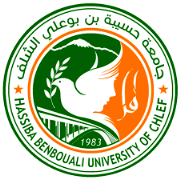Charlie Gordon as a posthuman character in Daniel Keyes’s Flowers for Algernon
DOI:
https://doi.org/10.70204/jlt.v3i2.295Keywords:
Intelligence,, posthumanism, science,, superman, transhumanismAbstract
This research explores the posthumanist viewpoint in Flowers for Algernon by
Daniel keyes through examining the moral and social ramifications of Charlie
Gordon's journey from amentally handicapped man to a superman and back again.
Drawing on the posthuman theory, this paper investigates how Keyes' depiction
of Charlie Gordon's metamorphosis challenges conventional ideas concerning
what it means to be a human. It further tackles the assumption that Charlie's
growth from an inferior human to a superior one demonstrates how humans are
neither permanent nor static. This study contends that the author offers a
posthumanist approach that challenges the inherent stability of human nature and
creates a space for transhumanism and genetic experimentation. Keyes' Flowers
for Algernon novel is regarded as a notable work for advancing profound insights
into the complexities of ethical and human values and their degradation, as well
as a vividly detailed understanding of the intricate tension between emotion and
intellect with the interference of science which allows for an expanded awareness
of the essence of what constitutes a human being.












